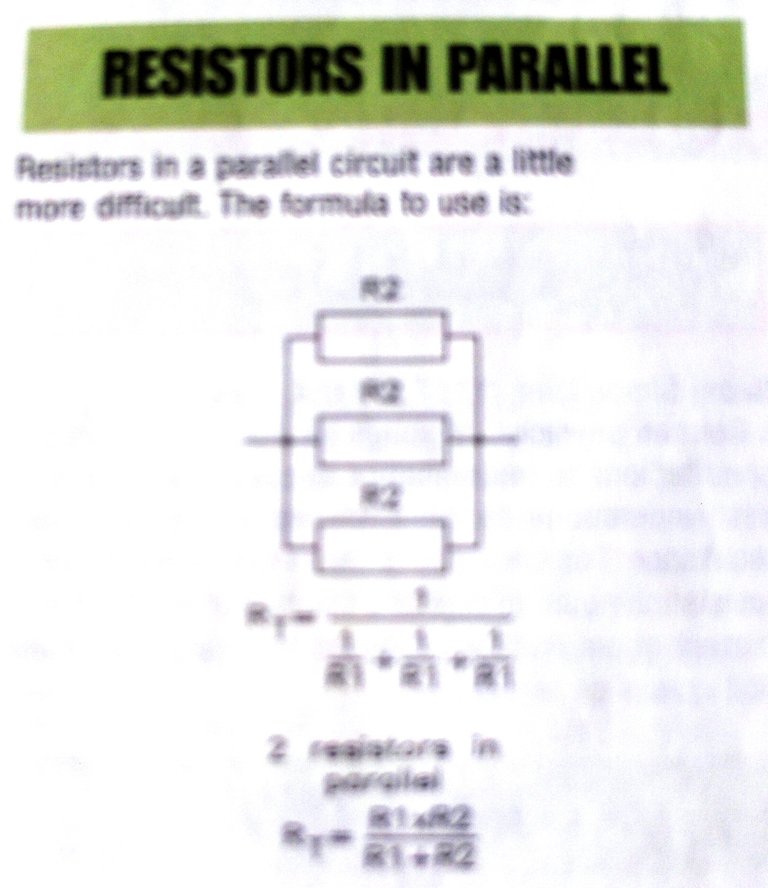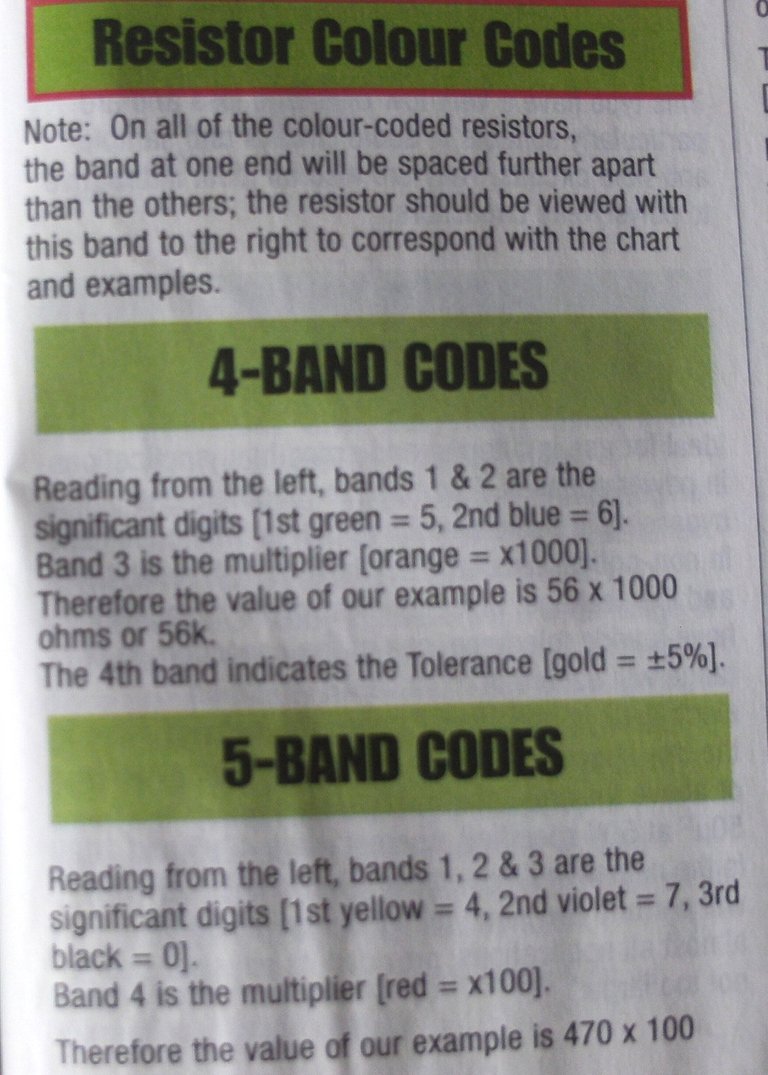RESISTORS
Before you can be able to repair or service your electronic equipment, you need to know the components use for manufacturing the products. I am going to explain to you what Resistor is and its uses.
Electronic equipment cannot work without resistor, resistor is a material in electronics, with which the flow of current is controlled through its opposition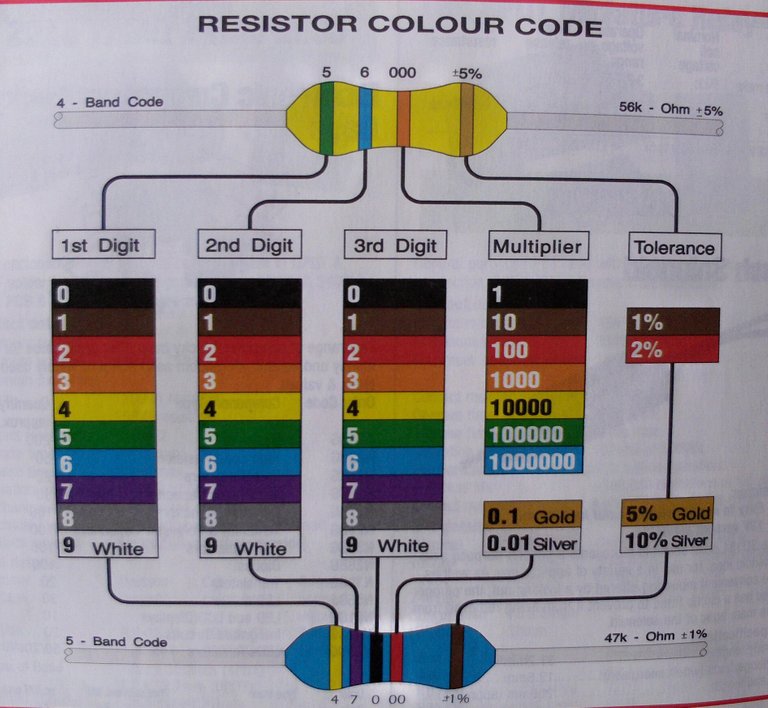
In some circuits, very high resistors are specially needed for special purpose, such as getting just the little current we need to operate something requiring little power. If there is no other way of supplying that particularly little amount of current than by a resistor, then it has to be.
There are fixed resistors and there are variable ones. The variable resistors are usually employed as volume controls in radio, television and practically in any electronic equipment. Variable resistance means variable current in the circuit, meaning variable sound-level or vision level etc.
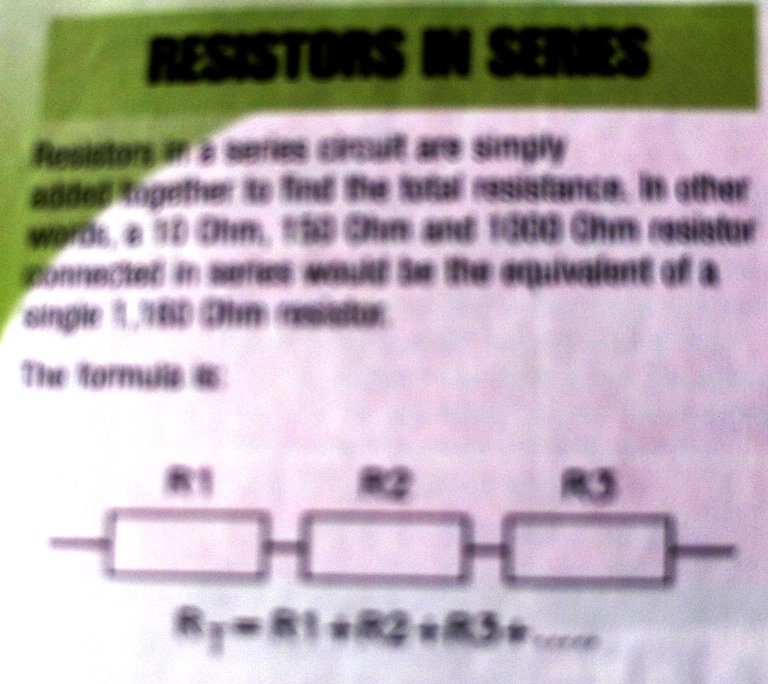
Brown = 1
Red = 2
Orange= 3
Yellow = 4
Green = 5
Blue = 6
Violet = 7
Grey = 8
White = 9
Black = 0
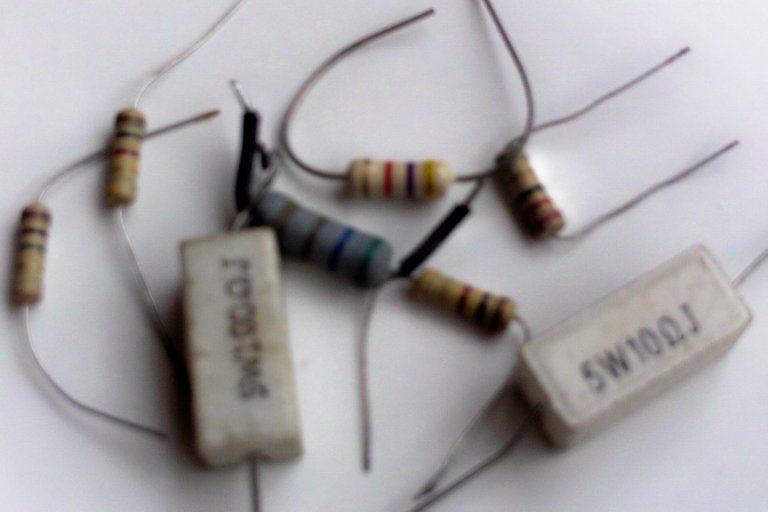
Sort: Trending
